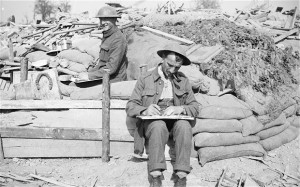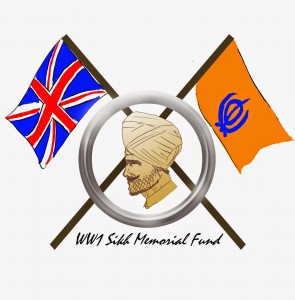The Sikh contribution to the First World War was a significant one. Michael Noble looks at the written evidence of their efforts and at a modern campaign to ensure that their sacrifice is not forgotten.
The First World War is often described as the first modern war. Although other conflicts may also lay claim to that title, among them the American Civil War and the Boer War, certain commonalities can be found that make them ‘modern’. The advanced nature of the technology, the adoption of industrial techniques, the role of the media and the suggestion of ‘total war’ all make the First World War recognisably of our own era, even as it slips from memory into history.
One of the most significant ways in which the war can be considered modern is in the fact that, for perhaps the first time in history, a majority of the combatants were literate. Although some level of literacy has been present, by definition, throughout recorded history, prior to the late 19th century, testimonies have usually come from the wealthy, powerful and educated minority. The First World War could perhaps be described as the first major conflict of mass literacy.

Reading and writing skills were not merely useful from a military organisation point of view, as the ongoing Operation War Diary makes clear; it also means that many of the participants in the conflict left a paper trail of their thoughts and feelings in the form of letters, diaries and, famously, poetry. Reading the personal documents of soldiers and their families is a privilege that lets modern readers gain intimate insights into the experience of life and war from those who were directly involved.
Of course, part of that range of epistolary comes from the soldiers who were drawn from different parts of the world. In 1999, the historian David Omissi collected and edited a selection of letters from Indian soldiers who found themselves on the Western Front and published them as Indian Voices of the Great War.
A selection of these letters now form the basis of Indians in the Trenches, a short film made by Dot Hyphen Productions who have made it their mission to educate and inform people in the 21st century about the actions of Indian solders in the First World War. The film features modern Sikh performers wearing the uniforms of a century ago and giving voice to the words of their forebears.

A recurrent theme is the sense of bravery and willing sacrifice. The testimony stresses not so much the conditions in the trenches, or in Europe particularly, but rather the ‘opportunity’ to engage the enemy, the winning of distinction, the desire to be sacrificed and the need to observe Sikh practices while at war.
Sowar Natha Singh, writing from France in January 1916 mentions expecting, even wanting to die. As he set his pen to paper, he did not expect to ever leave France. ‘I should like to die in this country’, he says. ‘I have no hope of seeing [the children] nor do I wish to see them for I have found a good opportunity for sacrificing my life’

Eight months later, Bakhlawar Singh, 6th Cavalry writes about his belief that the Sikhs ‘are fortunate men to have been given the chance to fight in this great war’.
The spirit of sacrifice pervades not just the letters and diaries, but the breadth of the Sikh experience in the war. Over 100,000 Sikhs took part in the war and, of the twenty-two Military Crosses awarded to Indian soldiers, fourteen went to Sikhs. This contribution is being reflected in a new campaign to create a lasting memorial to these soldiers. Jay Singh-Sohal is leading the campaign to raise funds to set the memorial at the National Memorial Arboretum near Lichfield. He says ‘we want to ensure that our community has a lasting legacy of remembrance for those who fought – a memorial will ensure that their service is never forgotten and that in future people remember their heroism.’
Indians in the Trenches is available to watch below.
You can get involved in the Sikh memorial campaign here.